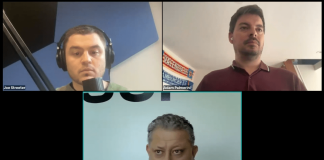When it comes to whether or not an operator should consider platform migration, three core components must be taken into account: technology, content and platform stability.
Speaking as part of the webinar entitled ‘Is your platform prepared for the ultimate 18 months of sports betting?’, Dave McDowell pointed out that the use of ‘modern and modular’ technology has helped FSB to meet the changing needs of its customers.
“I guess looking back about nine months ago, we took a view that even though our websites are still amongst the very fastest and most responsive in the industry, the technology platform that we were operating on wasn’t going to cut it going forward,” he shared.
“To improve this, we have reinvested into a full, react-based front-end channel. It’s investments like this which keep our platform modern, modular and up to date which is really what helps us build great relationships.”
One other factor that should be considered, according to the FSB CEO, is ‘agility’. He stressed the importance of remaining agile as well as understanding the key technology needs and requirements of each individual client.
He continued: “Especially now that we’re working with larger and larger companies, it’s important to understand that every one of our customers is different – they’ve all got different customer experience requirements and different regulatory needs. It’s really important for FSB to understand those requirements and be as agile as possible when we help get another customer live.”
Throughout the summer, punters will be presented with a wealth of big games to bet on meaning that operators must ensure that they have a technical set-up capable of handling the expected volumes of traffic and delivering a great customer experience – without which they face their customers switching to another platform.
To avoid an exodus of customers, Marc Thomas – Partner at Propus Partners – highlighted an underlying desire for content on betting sites, implying that many punters are seeking to find operators which combine the worlds of social media, content and gambling.
But while this can be a positive for some bettors, it poses somewhat of an issue for the more ‘traditional’ punter who is looking for a more simple betting experience.
Thomas explained: “I also think there’s a desire among operators to continually add more content, more bells and whistles onto their sites. I think that poses a dichotomy in some cases because there’s a group of customers that want more and more content on their betting site. That’s really good for the operator as it means they won’t leave to go to a media site.
“But on the other hand, there is another huge group of customers who say ‘don’t change the way I interact with my betting site. Don’t change any buttons, don’t move anything around’. So from an operator point of view, that’s really difficult.”
From Joe Saumarez Smith’s point of view, platform stability should play a major role in ensuring that you can meet the growing demands of customers in the coming year.
The Chairman of Eyas Gaming believes that when it comes to looking for a new platform provider, one of the first questions that should be asked is whether they can handle the volume of bets they expect to generate.
Other questions that should be considered is whether there are multiple data feeds from outside organisations, what the speed is for bet settlement, margin movement and whether the provider has a dedicated sports betting platform.
“The absolutely crucial thing is platform stability,” he noted. “It was one of the first things that we looked at when we were moving to a different sports betting platform provider. When we were switching, the first question we asked was ‘can you actually handle the sort of numbers that we think we will be generating?’
“We’ve got a very busy 18 month period where lots of sports events are taking place. This is a perfect opportunity for acquiring new customers. But there’s not much point if your site is going to crash in the middle of a World Cup game or an NFL match.”




